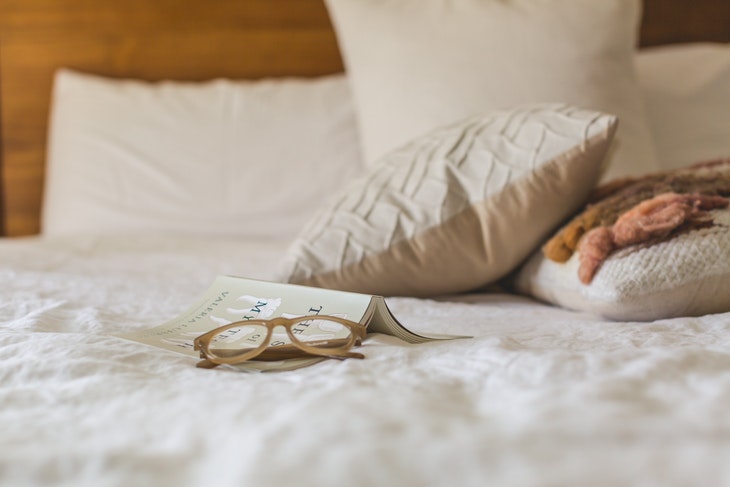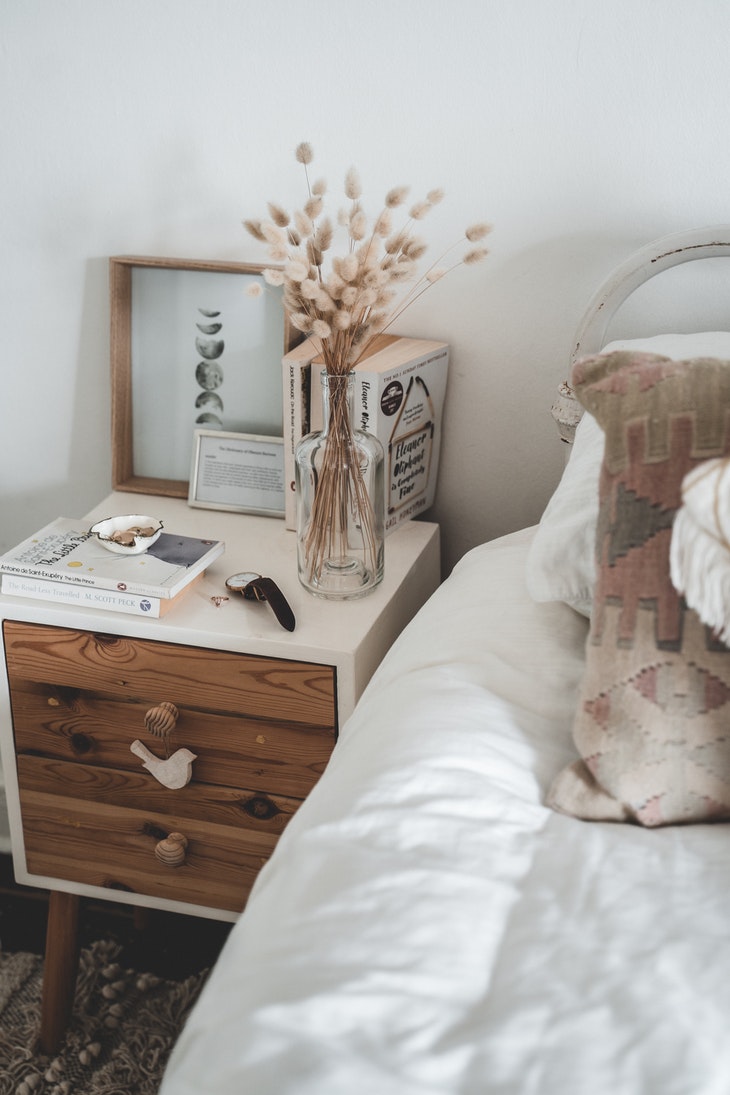
Usually, when the topic of healthy living comes up, the conversation steers towards the proper diet and the right amount of exercise required to maintain a healthy lifestyle. Well, sleep is just as important as the food you eat and how much exercise you get.
Even with a healthy diet, getting little to no sleep can negatively impact your hormones and brain function, causing adverse effects such as the increased risk of diseases, anxiety, high-stress levels, and weight gain. Simply put, the quality and quantity of your sleep matters. If you struggle with insomnia or restlessness during the night, the idea of falling asleep easily may seem like an impossible dream. Well, it isn’t – impossible.
You’re probably aware of the fact that medicinal cannabis is legal in most states, so if you want to start sleeping like a baby, you could learn how to get a medical marijuana card in Alabama and other states that allow it. It’s been shown that several habits can help improve the amount and quality of sleep you get at night, putting an end to whatever restlessness you endured in the past.
If you want to enjoy a sound sleep every night, here are ten ways to improve your sleeping pattern.
Read more after the jump:

1. Determine the quality of your bedding
Absolutely! The significance of quality bedding can’t be overemphasized. The mattress and pillows you choose to use play a critical role in determining your quality of sleep, overall health, and well-being. A sound night’s sleep can be the difference between waking up feeling rejuvenated and energized or feeling fatigued and listless.
Poor quality bedding can lead to a myriad of health issues. One common problem is lower back pain, which can significantly disrupt your sleep and daily activities. Others include neck and shoulder discomfort, sleep apnea, insomnia, and even allergies if the materials used in your bedding are not hypoallergenic.
When it comes to mattresses, we often underestimate their impact on our sleep quality. A worn-out or unsuitable mattress can not only disrupt your sleep but can also cause long-term health issues like chronic back pain and poor posture. It is therefore essential to invest in a quality mattress that supports your spine and body correctly.
The general rule of thumb suggests that you should upgrade your bedding every 5 to 10 years, but this can vary depending on the usage and quality of your current mattress and pillows. It’s vital to pay attention to any signs of wear and tear, such as sagging, lumps, or the mattress becoming too soft or too hard.
2. Avoid consuming caffeine before bed
Coffee has ingrained itself in many cultures worldwide, serving as a customary beverage for morning rituals, social gatherings, and as a fuel for those late-night work sessions. Its distinctive aroma and taste, along with the jolt of energy it provides, has made it a favored beverage for many.
The primary active ingredient in coffee is caffeine, a central nervous system stimulant that wards off drowsiness by blocking adenosine receptors in the brain. Caffeine can increase alertness and concentration, improve mood, and even boost physical performance. These qualities make coffee an excellent beverage to kick-start the day.
However, the consumption of coffee at night is a different matter altogether. Caffeine’s stimulating effects can significantly interfere with your ability to fall asleep. Caffeine has a half-life of about 5 to 6 hours, meaning that half of the caffeine consumed will still be in your system after this period. So, a cup of coffee consumed late in the evening can still affect your sleep quality, delaying the onset of sleep, reducing total sleep time, and disrupting the sleep cycle.
Sleep plays a critical role in maintaining overall health and well-being. It aids in repairing the heart and blood vessels, supports growth and development, helps improve learning and problem-solving skills, and balances your hormones, among other things. Therefore, disruptions in the sleep pattern due to late-night caffeine intake can have negative impacts on these functions.
3. Avoid taking naps late in the day
A quick and short nap can be incredibly restful during a busy day, helping you replenish your energy levels and get back to the day’s activities.
However, if you struggle with falling or staying asleep through the night, taking long naps, especially late in the day can decrease your ability to fall asleep at night. It’s, therefore, best to reduce the length of your naps and avoid taking one around late afternoon to evening.
4. Reduce blue light exposure
Nighttime activities that involve working on your laptop or spending long hours on the phone can negatively affect your sleeping pattern.
While exposure to natural light in the daytime is beneficial for healthy sleep, blue light can interfere with your circadian rhythm and trick your brain into believing it’s still daytime.
If you must use your smartphone or computer before bed, some apps can help reduce blue light on your devices.
5. Reduce your intake of heavy meals at night
To improve the quality of sleep you get, you’d have to make some compromises in your lifestyle, and this extends to your evening meals. Eating heavy foods just before bed can be problematic for those who struggle with falling asleep.
It’s best to finish dinner several hours before bedtime, so your body has a chance to digest the food. Also, limit nighttime snacks to foods that won’t affect your sleep.
6. Transform your bedroom into a sleep-inducing environment
Your bedroom environment is another key factor that can influence sleep, and getting quality bedding – as advised earlier – is a good first step.
External noises can act as stressors and interfere with your sleep, so try to minimize such noises, especially at night. Eliminate or reduce artificial lights and set your bedroom temperature to what’s most comfortable for you. For hot sleepers, Chilipad bed cooling systems regulate mattress temperature all night long for optimum sleep quality.
7. Maintain a consistent sleep schedule
Irregular sleep patterns can reduce melatonin levels and alter your circadian rhythm, leading to difficulty in falling asleep. Making a habit of going to bed and waking up at a specific time each day is a good way to set your internal clock.
Try to keep up with this sleep/waking cycle even on weekends, and soon your body’s internal clock will run so smoothly, you’d hardly need an alarm.
Final word
These tips, if followed consistently, can help you improve your sleep pattern and enjoy restful sleep every night. However, if you find that your sleep problems are no so easily cured, it could indicate a sleep disorder, and a visit to your doctor is in order.




















